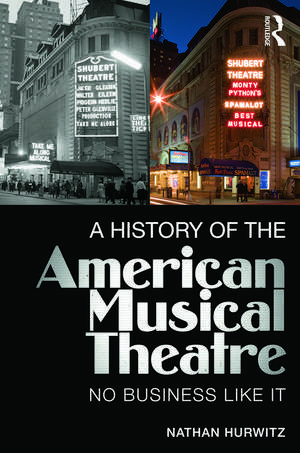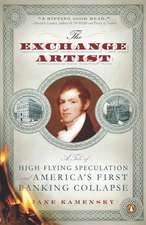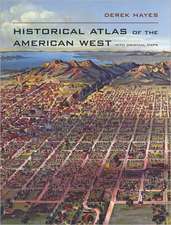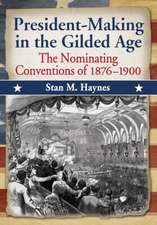A History of the American Musical Theatre: No Business Like It
Autor Nathan Hurwitzen Limba Engleză Paperback – 20 iun 2014
Nathan Hurwitz uses these factors to explain the output of each decade in turn, showing how the most popular productions spoke directly to the audiences of the time. He explores the function of musical theatre as commerce, tying each big success to the social and economic realities in which it flourished.
This study spans from the earliest spectacles and minstrel shows to contemporary musicals such as Avenue Q and Spiderman. It traces the trends of this most commercial of art forms from the perspective of its audiences, explaining how staying in touch with writers and producers strove to stay in touch with these changing moods. Each chapter deals with a specific decade, introducing the main players, the key productions and the major developments
in musical theatre during that period.
| Toate formatele și edițiile | Preț | Express |
|---|---|---|
| Paperback (2) | 280.76 lei 43-57 zile | |
| Taylor & Francis – 24 dec 2024 | 280.76 lei 43-57 zile | |
| Taylor & Francis – 20 iun 2014 | 480.71 lei 43-57 zile | |
| Hardback (2) | 765.43 lei 43-57 zile | |
| Taylor & Francis – 26 iun 2014 | 765.43 lei 43-57 zile | |
| Taylor & Francis – 24 dec 2024 | 937.23 lei 43-57 zile |
Preț: 480.71 lei
Nou
Puncte Express: 721
Preț estimativ în valută:
92.01€ • 99.98$ • 77.34£
92.01€ • 99.98$ • 77.34£
Carte tipărită la comandă
Livrare economică 21 aprilie-05 mai
Preluare comenzi: 021 569.72.76
Specificații
ISBN-13: 9780415715089
ISBN-10: 0415715083
Pagini: 268
Ilustrații: 1 black & white tables
Dimensiuni: 156 x 234 x 15 mm
Greutate: 0.41 kg
Ediția:New.
Editura: Taylor & Francis
Colecția Routledge
Locul publicării:Oxford, United Kingdom
ISBN-10: 0415715083
Pagini: 268
Ilustrații: 1 black & white tables
Dimensiuni: 156 x 234 x 15 mm
Greutate: 0.41 kg
Ediția:New.
Editura: Taylor & Francis
Colecția Routledge
Locul publicării:Oxford, United Kingdom
Cuprins
1. An Overview of the Musical Theatre: Prehistory to the 18th Century 2. Setting the Stage: Early Musical Theatre in America (1735-1865) 3. First Stirrings 1866-1902 4. New American Voices Begin to Emerge, 1900-1907 5. The Great Revuers and the Princess Theatre, 1907-1920 6. The Jazz Age, 1920-1929 7. The 1930’s 8. The 1940’s 9. The 1950’s 10. The 1960’s 11. The 1970’s 12. The 1980’s 13. The 1990’s 14. The 2000’s
Recenzii
"Although not the first such history, it is one of the best and most approachable I've read." - The Stage
"Hurwitz (Rider Univ.) presents a straightforward, well-organized account of the history of the Broadway musical stage. After introducing the European roots of musical theater, he begins his formal New World narrative with stage activities in pre–Revolutionary America and continues through to the early months of 2014 (though his account of recent years seems primarily a listing show by show). Hurwitz does a good job emphasizing business aspects, relating musicals to the changing social environment, and comparing shows from one period to another. Summing Up: Recommended." - R. D. Johnson, SUNY College at Oneonta, CHOICE
"Hurwitz (Rider Univ.) presents a straightforward, well-organized account of the history of the Broadway musical stage. After introducing the European roots of musical theater, he begins his formal New World narrative with stage activities in pre–Revolutionary America and continues through to the early months of 2014 (though his account of recent years seems primarily a listing show by show). Hurwitz does a good job emphasizing business aspects, relating musicals to the changing social environment, and comparing shows from one period to another. Summing Up: Recommended." - R. D. Johnson, SUNY College at Oneonta, CHOICE
Descriere
From the diverse proto-theatres of the mid-1800s, though the revues of the ‘20s, the ‘true musicals’ of the ‘40s, the politicisation of the ‘60s and the ‘mega-musicals’ of the ‘80s, every era in American musical theatre reflected a unique set of socio-cultural factors.
Nathan Hurwitz uses these factors to explain the output of each decade in turn, showing how the most popular productions spoke directly to the audiences of the time. He explores the function of musical theatre as commerce, tying each big success to the social and economic realities in which it flourished.
Nathan Hurwitz uses these factors to explain the output of each decade in turn, showing how the most popular productions spoke directly to the audiences of the time. He explores the function of musical theatre as commerce, tying each big success to the social and economic realities in which it flourished.
Notă biografică
Nathan Hurwitz spent 25+ years as a Musical Theatre conductor on Broadway and around the world. Having received his BFA from NYU, his Master's from Northwestern University, and his Ph.D. from the University of Pittsburgh, he has been on faculty of Syracuse University, NYU, the University of Pittsburgh, and NSULA, and is currently a tenured professor at Rider University, USA. He is the author of Songwriters of the American Musical Theatre: A Style Guide for Singers (2017).


















